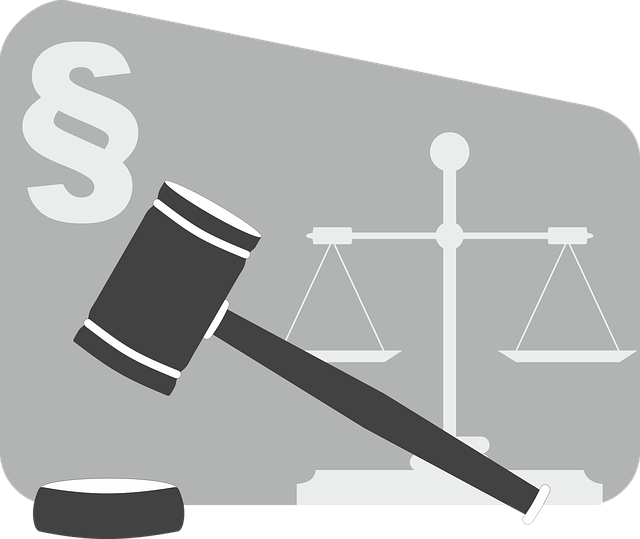Regulatory fraud laws, crucial for holding entities accountable, safeguard consumers, investors, and businesses from deceptive practices. The impact of antitrust laws significantly influences small businesses' growth trajectory, posing challenges due to limited resources and legal expertise. Understanding common fraud types like financial misreporting and bid-rigging is essential, with severe legal consequences including fines and imprisonment. Antitrust violations can lead to reputational damage. Effective defenses require complex strategies. Enforcement mechanisms involve administrative proceedings, civil lawsuits, and criminal prosecutions with substantial penalties. Proactive compliance measures, internal controls, employee training, and meticulous record-keeping are vital for small businesses to mitigate risks and foster a culture of integrity.
Regulatory fraud laws are a critical aspect of maintaining fair business practices, protecting consumers, and fostering economic integrity. This comprehensive guide explores the intricate world of fraud legislation, focusing on its impact on small enterprises. We delve into the intricacies of antitrust regulations, revealing their effects on startups and small businesses. Additionally, we unravel common fraudulent activities, their legal consequences, and effective strategies for compliance. Understanding these laws is essential for entrepreneurs to navigate regulatory requirements successfully.
- Understanding Regulatory Fraud Laws: A Comprehensive Overview
- The Impact of Antitrust Regulations on Small Enterprises
- Common Types of Fraud and Their Legal Implications
- Enforcement Mechanisms and Penalties for Violations
- Strategies for Small Businesses to Navigate and Comply with Fraud Laws
Understanding Regulatory Fraud Laws: A Comprehensive Overview

Regulatory Fraud Laws are designed to protect consumers, investors, and businesses from deceptive practices by holding entities accountable for their actions. These laws cover a wide range of activities, including financial misstatements, product tampering, and false advertising. Understanding these regulations is crucial for both large corporations and small businesses, as the impact of antitrust laws can significantly affect operations and growth strategies.
For his clients, navigating this complex landscape requires meticulous attention to detail. Legal experts play a vital role in ensuring that businesses comply with regulatory requirements, thereby avoiding hefty fines and damage to their reputation. An unprecedented track record of success in fraud prevention and resolution underscores the importance of proactive compliance measures. By staying ahead of evolving regulations, businesses can achieve extraordinary results while fostering trust among their stakeholders.
The Impact of Antitrust Regulations on Small Enterprises

The Impact of Antitrust Regulations on Small Enterprises is a complex interplay that can significantly shape their growth trajectory. While antitrust laws are designed to foster fair competition and protect consumers, they can also pose substantial challenges for small businesses, particularly during high-stakes cases across the country. These enterprises often operate with tighter resources and less legal expertise compared to larger corporations, making compliance a daunting task.
Throughout all stages of the investigative and enforcement process, small businesses must navigate intricate regulations that can stifle their expansion plans. Antitrust regulations aim to prevent anti-competitive behaviors like price-fixing, market division, and exclusive dealing, but the sheer complexity of these laws can create an uneven playing field. Small enterprises may struggle to keep up with legal requirements, leading to costly mistakes or even unintended violations that could severely impact their survival in competitive markets.
Common Types of Fraud and Their Legal Implications

In the realm of regulatory fraud laws, understanding common types of fraud and their legal implications is paramount. Fraudulent activities can range from financial misreporting to bid-rigging and anti-trust violations. These offenses carry significant legal consequences, including substantial fines, imprisonment, and civil lawsuits. For instance, white-collar crimes like securities fraud and wire fraud often result in lengthy investigations and severe penalties, with the impact of antitrust laws on small businesses being a notable consideration across the country. While these laws aim to protect fair competition, they can also pose challenges for legitimate businesses, especially during legal proceedings aimed at securing a complete dismissal of all charges.
The implications extend beyond financial losses; reputational damage and disruption to business operations are also considerable. Legal defenses against such charges often involve complex strategies, including challenging the admissibility of evidence and proving lack of intent. Effective white-collar defense mechanisms can lead to the dismissal of charges or reduced sentences. However, navigating these legal landscapes is intricate, requiring expert counsel experienced in managing cases that span across the country, ensuring businesses receive fair treatment under regulatory frameworks.
Enforcement Mechanisms and Penalties for Violations

Enforcement mechanisms under regulatory fraud laws are designed to deter violations and ensure accountability. Regulatory agencies have a range of tools at their disposal, including administrative proceedings, civil lawsuits, and criminal prosecutions. In high-stakes cases involving significant financial losses or widespread harm, penalties can be severe, with potential fines reaching millions of dollars. These penalties not only aim to punish wrongdoers but also serve as a deterrent for future violations.
The impact of antitrust laws on small businesses is an important consideration in regulatory fraud cases. While these laws primarily target large corporations and their complex schemes, they also protect small businesses from unfair practices that could distort competition. In the realm of white-collar defense, understanding the nuances of both regulatory fraud and antitrust legislation is crucial for corporate and individual clients facing investigations or charges.
Strategies for Small Businesses to Navigate and Comply with Fraud Laws

Small businesses often find themselves navigating a complex web of regulations to ensure compliance with fraud laws. While larger corporations may have dedicated legal teams to manage these intricacies, smaller enterprises typically rely on general criminal defense strategies and expert advice from attorneys specializing in white-collar defense. The impact of antitrust laws, which can vary significantly for small businesses compared to their larger counterparts, requires a keen understanding of market competition and fair business practices.
To stay ahead, small business owners should prioritize proactive measures, such as implementing robust internal controls, regular employee training on ethical conduct, and maintaining meticulous financial records. By fostering a culture of integrity from the outset, these steps can help mitigate potential risks and demonstrate good faith efforts to comply with fraud laws. An unprecedented track record of ethical behavior can not only protect against legal repercussions but also enhance the business’s reputation in the long run.
Regulatory fraud laws, encompassing understanding, enforcement, and compliance strategies, are vital tools in safeguarding fair competition. For small businesses, navigating these laws, especially in light of the impact of antitrust regulations, can be challenging. However, by recognizing common types of fraud and implementing preventive measures, enterprises can mitigate legal implications. The article has provided an overview, highlighting the importance of compliance not just for avoiding penalties but also for fostering trust with customers and stakeholders. In terms of navigating these laws, small businesses must stay informed, seek professional advice when necessary, and adapt their practices to meet evolving regulatory standards, thereby ensuring sustained growth and success in a competitive market.






